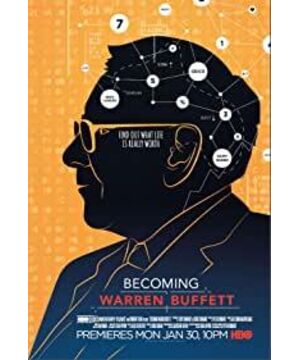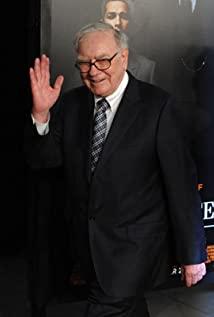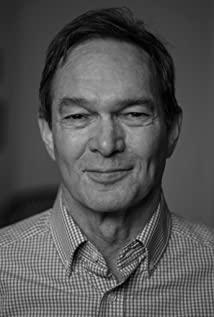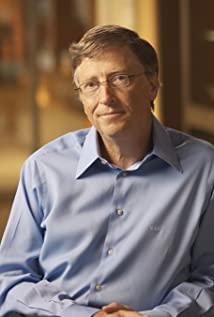http://www.bilibili.com/video/av8837607/
The following is the film review:
The year Buffett was born, the
United States happened to be in a period of stock market crash.
When he was 1 year old, his father lost his job.
Buffett's father was a stock salesman. He had no savings at the time,
but he resolutely decided to start an investment company by himself. It
was during the Great Depression.
Now that I think about it, it really took a lot of courage.
Every weekend, Buffett would go there with his sister to play calculators.
His sister clearly remembered that once
his brother said to her, " I'm going to be a millionaire by the
age of 30." There has never been a millionaire. As a child, Buffett only had five cents of pocket money a week. It is conceivable that this amount of money is not enough to satisfy a child. So he learned to do business very early, first selling Coca-Cola door-to-door, and later selling the Post. Buffett says he likes the errand of delivering newspapers because it allows him to plan his preferred route. He delivers 500 newspapers a day, earning a penny each. It doesn’t seem like much, but because of the “compounding effect”, a penny saved that year turned into a few hundred dollars, or even a thousand dollars. When it comes to the "compound interest effect", there is a famous "72" rule in the capital market:
You just need to divide by 72 for the yield
to get the time it takes to double your principal.
For example, if your annual rate of return is 10%,
it will only take 7.2 years for your principal to double.
The "compounding effect" tells us that
the right combination of time and rate of return can lead to great returns on investments.
Conversely,
any unsatisfactory time and rate of return will bring huge losses.
Many people try to find the holy grail in investing,
and the first holy grail Buffett found is compound interest.
The 300 million principal he accumulated before the age of 50 will
become 60 billion after 30 years.
So the first important revelation we get from this is that the
initial capital size is not so important,
the timing of the start and the continuity of growth should be pursued more.
Many people know that
Buffett's leader in the stock market is Graham,
the "father of modern securities" who taught Buffett "value investing".
Graham was a firm believer that you had to study a company's financial statements carefully, and
if you found out that the company was making money, you eventually made money too.
Out of his belief in "value investing",
Buffett has read the investment manual over and over again,
looking for all stocks that may be undervalued.
He buys below book value
and sells when the price is back near its true value.
As you can imagine,
such stocks are like "a cigar butt that's going to burn out."
Buffett 's job
is to buy at the right time
and benefit from that last puff.
Just looking for "value depressions" is not enough.
Another investment principle that Buffett has adhered to for more than 60 years is to
only do things within the circle of competence.
He had read a book, "The Science of Baseball,"
which had a picture of the author holding a bat waiting to hit the ball. The authors found that he had a 40 percent chance of hitting a strike
if he just waited for the sweet spot , but just over 20 percent if he was in the corner . Buffett thinks investing is a similar but better game, because in investing you can always wait on the court, ignoring other possibilities and just waiting for your best hitting position. In baseball, you're out, but not in investing. Faced with countless missed opportunities, others may say, "Swing, idiot!" Leave them alone. The liquidity of the stock market is too strong, so when people invest, they will encounter so many temptations that they will sell too frequently. This is the problem. Over the years, Buffett has screened out a lot of opportunities because he knows his capabilities and never pays attention to what's outside his circle. As far as Graham was to Buffett, there was Charlie Munger. Sticking to "value investing," Buffett made a lot of money in the era of "burning out cigar butts." But he also had some unpleasant investing experiences, because in the past , Buffett never cared if companies and management were bad as long as stocks were cheap .
And Munger changed his attitude and
let him buy good companies at the right price;
instead of buying the right company at a cheap price.
What is a good company?
In 1993, Buffett first proposed the concept of "moat" in his letter to shareholders.
In his opinion, it is
easy for consumers to change toothpaste brands,
but it is too troublesome to change bank accounts and corporate databases.
The huge switching cost is one of the "moats" of blue-chip companies,
which became his reason for investing in Wells Fargo.
In addition to switching costs, the
brand is another "moat"
in Buffett's mind. Coca-Cola, which has a place in the minds of consumers,
eventually helped him earn 10 times the profit.
Buffett has always believed that
it was the transformation from "cigar butts" to blue-chip stocks that
allowed Berkshire Hathaway to thrive.
Among the Americans who have been on the Forbes list for a long time, in
addition to Buffett,
there is also Bill Gates.
Gates is concerned about the computer market, and Buffett is obsessed with investing in his career. It
seems that the two people are completely different.
But this is not the case.
As early as 1991, Gates' mother asked him to meet Buffett,
but Gates was very reluctant at the time: "
Buffett only plays stocks, and there is no common language between me and him."
But He was wrong.
As soon as they met, the legendary investor's attitude and worldview impressed Gates,
and from that day on, the deepest friendship developed between the two super-rich.
Their relationship didn't stop there.
Not long after they met,
during a chat, Gates’ dad played a game with them,
asking them to each write down on a piece of paper the word that would help them the most.
Gates and Buffett didn't communicate
at all while writing the word "focus."
Yes, focus.
For Buffett, if he is interested in something new, he will read a lot and will want to meet people related to it.
So does Gates.
Because of their focus,
Gates and Buffett don't know anything about things they don't care about. For
example, they don't understand cooking and art, and they don't understand physics and the universe at all.
But also because of their focus,
about business, these two people's cognition surpasses the vast majority of people in the world.
Today,
Buffett's worth is still rising gradually,
but the rich also have the troubles of the rich.
A question that needs to be solved is:
Where does such a huge amount of property go?
For a while, Buffett was under fire
because he made a lot of money every year
but didn't give it away like other rich people.
So some people criticized him very harshly, and
Buffett never responded.
It's not that he doesn't want to give back to the society,
he's just thinking about this question:
how to give this money back to the society is the most useful to people?
He once thought that
since the principal can play a greater role in his own hands, there is no need to donate it in a hurry.
By 2006,
Buffett appeared at the Bill & Melinda Gates Foundation gala,
This time, he promised to donate most of his wealth to
answer the past doubts with practical actions.
By this time he had determined that
the wealth, whether used in early education or medical care,
was enough to make an impactful change in most people.
Of course, aside from the donation itself, what makes
Buffett's gift more valuable is that
he sent a message to the rest of America's wealthy that
those who have a lot can help those who have nothing.
It is believed that in a hundred years, Buffett will still be remembered by history,
but we do not know what role he will be recorded in.
Are you a famous investor?
Or a philanthropist?
Buffett said:
"My goal in life is to be a teacher.
In my opinion,
life is like a movie,
you can't live in the dark. You have to find a job that you are willing to do
even if you don't need the money.
"
Life is good,
every morning you jump out of bed
because you're looking forward to it.
I've been tap dancing to work for over 60 years.
Because I love what I'm doing,
I think I'm so lucky."
This article is reproduced from the Zhihu column [Venture Capital Methodology]
More similar content: Focus on the 42 chapters of the official account
View more about Becoming Warren Buffett reviews









